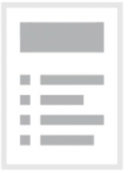IRANIAN OIL COMPANY (U.K.) LIMITED modern slavery statement summary (2025)
Organisation address
4 Victoria Street,
London,
SW1H 0NE
We asked the organisation a series of questions about its modern slavery statement. Its answers are published on this page as a statement summary.
This statement provides information for 5 of 6 recommended areas
What is a modern slavery statement?
PDF version of the statement
If you need an accessible version of this PDF file, please contact IRANIAN OIL COMPANY (U.K.) LIMITED for further assistance.

About this statement summary
All answers relate to the financial year covered by the statement. The organisation is responsible for all the information it provided. Some of our questions are optional, so organisations may not have answered all of them. The statement summary does not replace the full modern slavery statement – below we provide a link to the full statement on the organisation’s website.
Contents
- Legal requirement to publish
- Statement period and sign-off details
- Recommended areas covered by the statement
- The organisation’s sectors and turnover
- Number of years producing statements
- Policies
- Training
- Monitoring working conditions
- Modern slavery risks
- Finding indicators of modern slavery
- Demonstrating progress
Legal requirement to publish
IRANIAN OIL COMPANY (U.K.) LIMITED has confirmed it is required to publish a 2025 statement by law.
Statement period and sign-off details
The statement covers the following period:
1 January 2024 to 31 December 2024
The statement was signed off by:
JAFAR DAMANPAK (DIRECTOR)
It was approved by the board (or equivalent management body) on:
28 February 2025
Recommended areas covered by the statement
Government guidance encourages organisations to cover a range of areas in their modern slavery statements, setting out the steps they’re taking to address modern slavery risks in their operations and supply chains. Read about the recommended areas in the statutory guidance.
We asked the organisation to tell us which areas its statement covers.
| Areas recommended by government guidance | Organisation’s response |
|---|---|
| The organisation’s structure, business and supply chains | Covered |
| Policies | Covered |
| Risk assessment | Covered |
| Due diligence (steps to address risk) | Covered |
| Training about modern slavery | Covered |
| Goals and key performance indicators (KPIs) to measure the effectiveness of the organisation's actions and progress over time |
Not covered
IOC is committed to respecting internationally recognised human rights and labour standards.
|
The organisation’s sectors and turnover
Sectors
The organisation operates in the following sectors:
- Mining, metals, chemicals and resources (including oil and gas)
Turnover
Its turnover in the financial accounting year of this statement was:
£100 million to £500 million
What does 'turnover' refer to in group statements?
Number of years producing statements
How does this work for group statements?
Policies (optional)
| Policy provisions we asked about | Organisation’s response |
|---|---|
| Freedom of workers to terminate employment | Included |
| Freedom of movement | Included |
| Freedom of association | Included |
| Prohibits any threat of violence, harassment and intimidation | Included |
| Prohibits the use of worker-paid recruitment fees | Not included |
| Prohibits compulsory overtime | Included |
| Prohibits child labour | Not included |
| Prohibits discrimination | Included |
| Prohibits confiscation of workers' original identification documents | Not included |
| Provides access to remedy, compensation and justice for victims of modern slavery | Not included |
| Other |
Not included
|
Training (optional)
What counts as training?
Monitoring working conditions (optional)
Engaging with others
Social audits
What are social audits?
Grievance mechanisms
Other ways of monitoring working conditions
Modern slavery risks (optional)
Priority risks for this organisation (1 of 3)
| Questions we asked about this risk | Organisation’s response |
|---|---|
| Where it was most likely to occur |
Organisation’s response:
Organisation selected ‘Other’ and wrote: Operator's operation |
| Who was it most likely to affect | Organisation’s response: No details provided |
| In which country | Organisation’s response: No details provided |
| Actions or plans to address this risk | Organisation’s response: It is operator of the field responsibility to deal with any risk involved in his operation. |
Priority risks for this organisation (2 of 3)
| Questions we asked about this risk | Organisation’s response |
|---|---|
| Where it was most likely to occur | Organisation’s response: Within your own operations. |
| Who was it most likely to affect | Organisation’s response: No details provided |
| In which country | Organisation’s response: No details provided |
| Actions or plans to address this risk | Organisation’s response: IOC’s underlying philosophy is that the Board and employees will abide by all the laws of the jurisdictions in which IOC has interests in |
Priority risks for this organisation (3 of 3)
| Questions we asked about this risk | Organisation’s response |
|---|---|
| Where it was most likely to occur | Organisation’s response: Within your own operations. |
| Who was it most likely to affect | Organisation’s response: No details provided |
| In which country | Organisation’s response: No details provided |
| Actions or plans to address this risk | Organisation’s response: IOC is committed to ensuring that our directors and our employees are aware of the requirements of the Modern Slavery Act and our policy in relation to the same. |